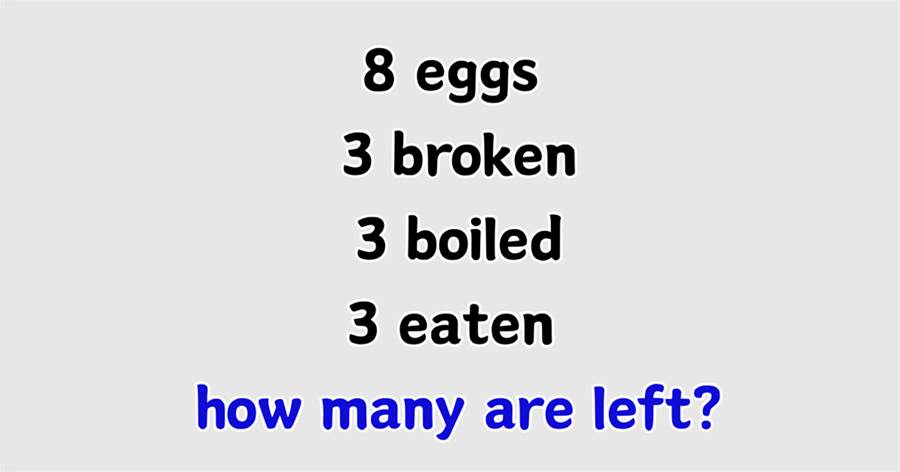
Recently, I saw a very interesting question: 8 eggs, 3 broken, 3 boiled, 3 eaten, how many are left?

The comment area was noisy, some people said that there were 2 left, some said 5, and some people moved out various theorems to ridicule "I don't know". In fact, this question is not about mathematics, but about common sense.
Let's take it step by step: can you boil the 3 eggs that have been broken? According to common sense, broken eggs can be boiled, so you can't throw them away.
The 3 boiled ones have a high chance of breaking these 3 - who would deliberately break the good eggs and then cook them?
Then, the boiled 3 were eaten. It is equivalent to saying that it is actually the same batch of eggs that are broken, boiled, and eaten. Of the original 8, if you remove these 3, will there be only 5 left?
Some people are entangled in "broken ones can't be cooked", which makes it complicated.
In life, cooking is so particular, and it is too common to boil broken eggs into poached eggs in a bowl. Just like the last time my mother fried an egg, it accidentally cracked, and it was not wasted when it was fried directly.
The ingenuity of this question is to "overlap" - don't think of breaking, cooking, and eating as three separate things.
Just like at work, a thing may involve several processes at the same time, and it will be messy when you take it apart.
So the answer is 5. You see, sometimes solving a problem doesn't have to be complicated, think more about how to do it, and the answer will come out naturally. The next time you encounter this kind of problem, you might as well connect it with life, maybe the comparison formula will work.



















